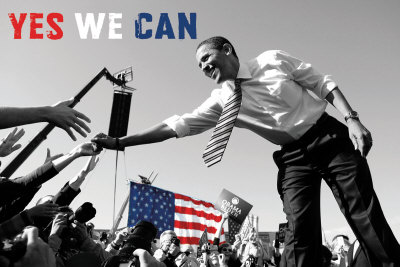What Can I Say? David Cunliffe, like all modern politicians, is required to address and impress multiple audiences simultaneously. It makes for conventional speech-making and overly cautious policy. Cunliffe's 'State of the Nation' address of 27 January is a case in point. Transformative social democratic campaigns are made of stronger stuff.
IT STARTED WELL. The Kelston Girl’s College hall was
full-to-bursting – an achievement in itself on a sunny public holiday in
Auckland. Political meetings are no longer the draw cards they used to be, back
in the days when thousands would turn out to hear a party leader speak, so I
imagine Labour was delighted with the 700-800 people who had ventured forth to
hear David Cunliffe’s “State of the Nation” speech.
It can’t be easy, pulling one of these things together. The
modern political speechwriter is tasked with addressing (but not upsetting) a
multitude of audiences simultaneously. Ranged along the right-hand side of the
hall were the conduits to these “demographics”. Running my eye down the media bench,
I counted off a slew of the Parliamentary Press Gallery’s finest. In the centre
of the hall the television networks’ cameras were lined-up in front of the
speaker’s podium like a firing squad.
How much easier it must have been when the only people you
had to please were those in the room. In the years before live broadcasts and
journalistic “balance”, when editors instructed their reporters under no
circumstances to report anything the Labour Party said or did. Back then
politicians could speak freely to the party faithful in the lingua franca of shared convictions and
common dreams.
Cunliffe did a little of that: rationing his manse-bred
emotion through his cat-who-got-the-cream grin; careful not to give his enemies
the ammunition needed to shoot him; appealing to his audience’s dwindling sense
of what Labour stands for by appending a mischievous “if you know what I mean”
to his deliberately unfinished policy promises.
I’m not sure the audience understood their hero’s emotional
reticence or much appreciated the modern political leader’s need to engage in
communicative multi-tasking. There were moments when their need to hear their
own anger and frustration thrown back at them raw and red was palpable. But
they were out of luck. For better or worse, David Cunliffe doesn’t do
demagogue.
Not yet anyway.
For the moment he’s listening to his advisers and seeking
the opinions of his colleagues. They were all in the hall on Monday, beaming up
at him from their front row seats in a gut-churning display of amity and unity.
As if the men and women on the media bench had forgotten the secret briefings,
the strategic leaks. As if the party rank-and-file had forgiven the bitterness
and bile, the cruel rumour-mongering, the ruthless character assassination.
Actors assembled, the play continued.
The “Best Start” policy of state-rewarded fecundity is the
work of many months of flailing and threshing in Labour’s policy mill. A little
grist from years of selfless advocacy by Labour’s Policy Council, and a lot of
chaff from the uneasy trio of Annette King, Sue Moroney and Jacinda Ardern.
I listened and sighed. Not because helping the new-born
baby’s parents with a weekly payment of $60 is a bad thing to do, but because
there was a time when supplying the wherewithal for the labour force’s reproduction
was the employers’ responsibility – not the state’s. Will Labour never tire of
subsidising the bosses’ parsimony with money taken from the pocket of one worker
and slipped into the hand of another?
And why, oh why, this reluctance to embrace universality? If
it makes sense to woo those with a combined household income of $150,000, then
why not seek the affections of those earning $175,000 – or $200,000? There is
something noble in saying: “This is yours because you are a citizen: a
co-participant in this thing we call New Zealand.” It should be beneath a
socialist’s dignity to say “You – but not them!”
The place for drawing up lists and making tables is the
Inland Revenue Department. The best “targeting” device ever constructed is
called a Progressive Taxation System.
It started well, but David Cunliffe’s “State of the Nation”
did not progress very far. He damped his tinder down and planted seeds.
I was hoping for a flame.
This essay was
originally published in The Dominion Post, The Waikato Times, The
Taranaki Daily News, The Timaru
Herald, The Otago Daily Times and The Greymouth Star of Friday, 31 January 2014.














